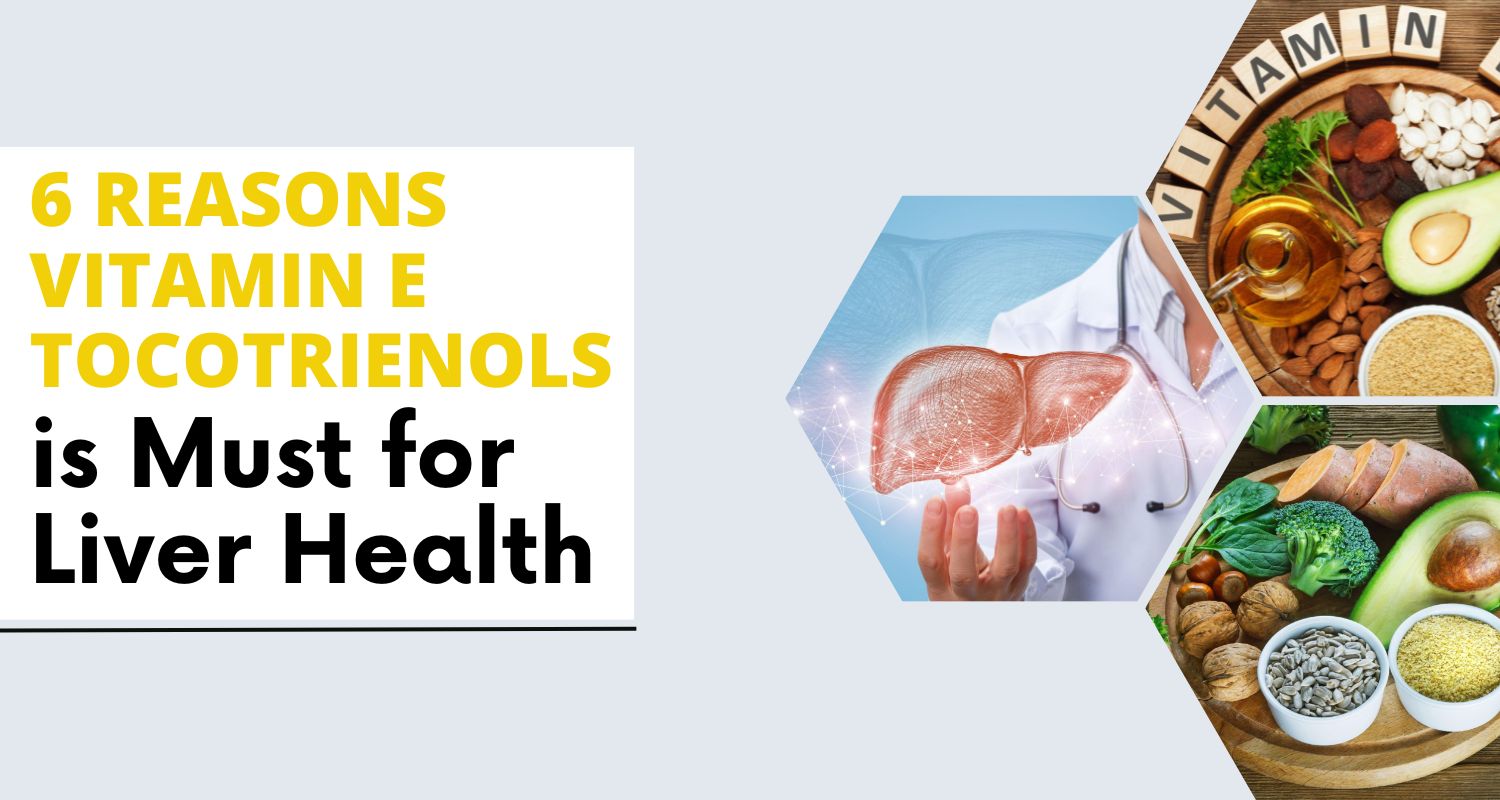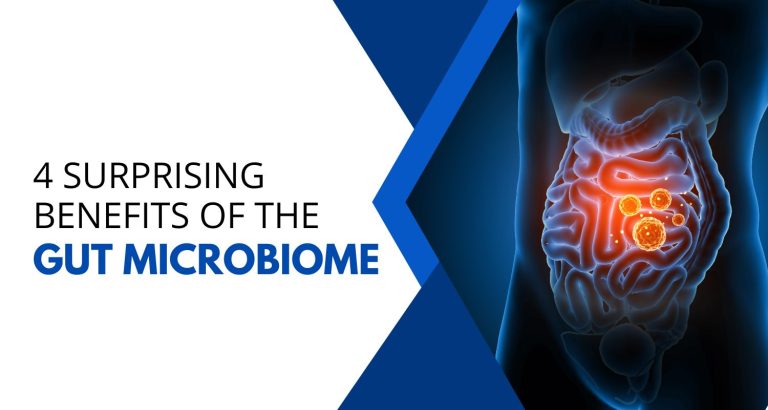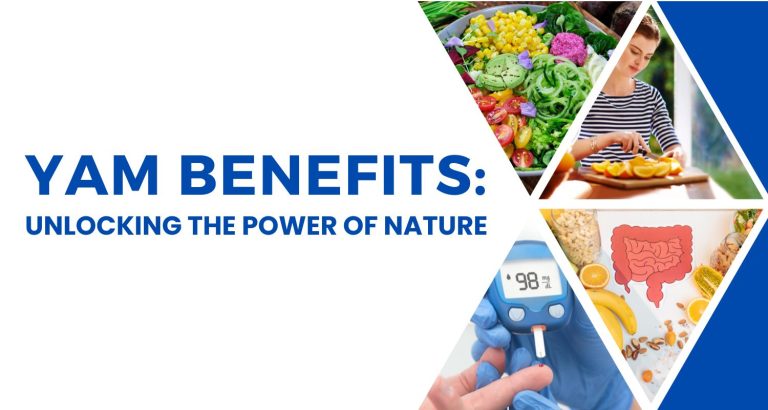6 Reasons Vitamin E Tocotrienols is a Must for Liver Health

To support liver health, vitamin E, particularly in the form of tocotrienols, offers numerous benefits. In this blog, we will delve into the specifics of how vitamin E tocotrienols aid liver health and explore their importance in managing liver conditions such as cirrhosis and fatty liver disease.
What are Tocotrienols?
First things first, some of you might be wondering what tocotrienols are. They are a form of vitamin E. Vitamin E, an essential fat-soluble nutrient, is renowned for its antioxidant properties that play a vital role in maintaining overall health. When delving into vitamin E, two prominent forms emerge tocotrienols and tocopherols.
Tocotrienols can be sourced from annatto, palm fruit, and rice bran. Annatto seeds contain the purest source of tocotrienols. Unlike other sources (i.e., palm fruit and rice) that include tocopherols in their composition, annatto is a superior source of tocotrienols since it exclusively contains vitamin E components.
Tocotrienols are, therefore, usually believed to function as antioxidants more effectively when compared to tocopherols. Tocotrienols are more advantageous than saturated fatty acids for tissues with saturated fatty layers, such as the liver and brain.
1. Detoxification Support
The liver’s most well-known function is detoxification. It processes and removes toxins from the bloodstream, ensuring the body remains free from harmful substances. However, this process generates free radicals that can damage liver cells.
This is where vitamin E tocotrienols come into play. With their powerful antioxidant properties, tocotrienols can neutralize these free radicals, reducing oxidative stress in the liver. By aiding in detoxification support, tocotrienols help the liver function more efficiently, safeguarding it from damage and supporting overall liver health. [1]
2. Protection against Cirrhosis of the Liver
Cirrhosis is a severe liver condition in which healthy liver tissue is gradually replaced by scar tissue. It often results from chronic alcohol abuse, viral infections like hepatitis, and certain medical conditions.
In cases of cirrhosis, the liver’s ability to perform its functions becomes severely compromised. However, studies have shown that vitamin E tocotrienols can slow down the progression of cirrhosis by protecting liver cells from damage and inflammation. [2]
By acting as a shield against cirrhosis, tocotrienols can be an effective complementary treatment for those dealing with this debilitating liver disease.
3. Management of Fatty Liver Disease
Non-alcoholic fatty liver disease (NAFLD) has become a growing health concern, primarily due to unhealthy dietary choices and a sedentary lifestyle. NAFLD involves the accumulation of excess fat in the liver, which can lead to inflammation and damage.
Vitamin E tocotrienols have demonstrated their ability to manage fatty liver disease by reducing liver fat content and inflammation. A 2023 study found that by addressing the core issues of NAFLD, tocotrienols can help prevent the disease’s progression and alleviate its impact on liver health. [3]
4. Reduction of Fatty Liver Symptoms
In the early stages of fatty liver disease, symptoms are often subtle and easily overlooked. However, as the condition advances, symptoms such as fatigue, discomfort in the abdominal area, and unexplained weight loss may become more pronounced.
Vitamin E tocotrienols can provide relief from these symptoms by tackling the root cause of the condition. Their capacity to reduce liver fat content and inflammation not only addresses the source of discomfort but also supports overall liver health, ensuring a better quality of life for those dealing with fatty liver disease. [4]
5. Enhanced Liver Regeneration
The liver is unique in its ability to regenerate. This regenerative capacity is essential for recovering from liver damage caused by various diseases and conditions, including cirrhosis, hepatitis, and surgical interventions. Vitamin E tocotrienols play a significant role in this process by enhancing the liver’s regenerative abilities. [5]
By providing the necessary support for cell repair and growth, tocotrienols facilitate quicker recovery and improve overall liver health, especially after liver-related issues or surgeries.
6. Antioxidant Properties
Oxidative stress, caused by the presence of excessive free radicals, is detrimental to the liver’s health. These free radicals can damage liver cells and lead to inflammation and disease.
Vitamin E Tocotrienols function as potent antioxidants that help maintain a healthy balance between free radical production and the body’s ability to neutralize them. By reducing oxidative stress and safeguarding liver cells, tocotrienols protect the liver from harm, ensuring its ongoing optimal performance and overall health. [6]
Choose the Right Vitamin E Capsules
Incorporating vitamin E tocotrienols into your diet can be conveniently achieved through the use of capsules. Vitamin E capsules are readily available over the counter and provide a controlled dosage of tocotrienols, making it easy to ensure you’re getting the right amount to support your liver health.
To determine the appropriate dosage for your individual needs, it’s essential to consult with a healthcare professional before starting any new supplementation. This ensures that you are taking the correct amount and reaping the maximum benefits while minimizing any potential side effects.
Conclusion
Vitamin E tocotrienols are exceptional in their support for liver health. They offer a multifaceted approach to addressing liver-related conditions such as cirrhosis and fatty liver disease. By acting as antioxidants, reducing liver fat, aiding in the regeneration of liver cells, and offering protection from oxidative stress,
Tocotrienols play a crucial role in enhancing the well-being of your liver. If you have concerns about your liver health or have been diagnosed with a liver-related condition, it is wise to consider integrating vitamin E tocotrienols into your daily routine.
Nonetheless, always seek guidance from a healthcare provider before starting any new supplementation to ensure that it aligns with your specific health requirements. Your liver, the unsung hero of your body, deserves the best care possible, and vitamin E tocotrienols can be a valuable ally in this endeavor.
References
- Viola, Valentina, et al. “Why tocotrienols work better: insights into the in vitro anti-cancer mechanism of vitamin E.” Genes & nutrition 7.1 (2012): 29-41.
- Pervez, Muhammad Amjad, et al. “Comparison of delta-tocotrienol and alpha-tocopherol effects on hepatic steatosis and inflammatory biomarkers in patients with non-alcoholic fatty liver disease: A randomized double-blind active-controlled trial.” Complementary Therapies in Medicine 70 (2022): 102866.
- Chin, Kok-Yong, Sophia Ogechi Ekeuku, Deborah Chia Hsin Chew, and Anne Trias. 2023. “Tocotrienol in the Management of Nonalcoholic Fatty Liver Disease: A Systematic Review” Nutrients 15, no. 4: 834. https://doi.org/10.3390/nu15040834
- Magosso, Enrico, et al. “Tocotrienols for normalisation of hepatic echogenic response in nonalcoholic fatty liver: a randomised placebo-controlled clinical trial.” Nutrition journal 12.1 (2013): 1-8.
- Tan, Cheau Yih, et al. “Comparative hepatoprotective effects of tocotrienol analogs against drug-induced liver injury.” Redox Biology 4 (2015): 308-320.
- Rebecca Sy Wong, Ammu K Radhakrishnan, Tocotrienol research: past into present, Nutrition Reviews, Volume 70, Issue 9, 1 September 2012, Pages 483–490, https://doi.org/10.1111/j.1753-4887.2012.00512.x






